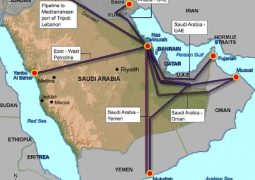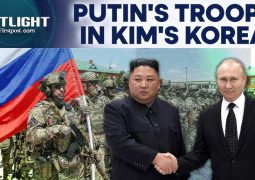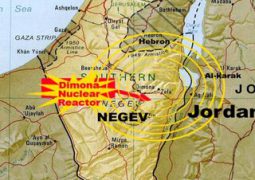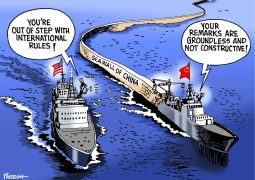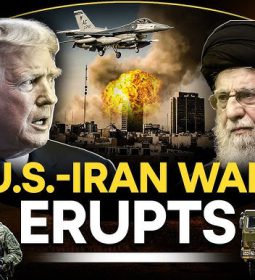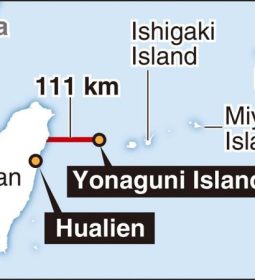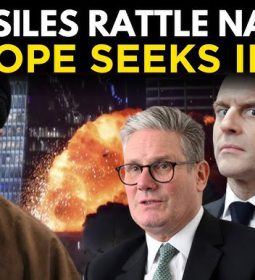Is Turkey Turning the Tide in Libya’s War?
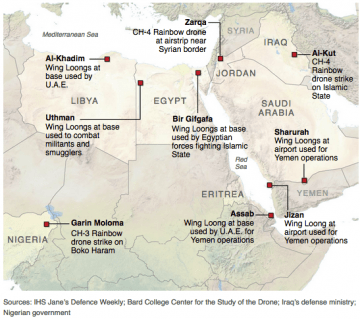
, Bloomberg News
(Bloomberg) — A full-throttled military intervention by Turkey could have turned the tide in Libya’s civil war, in a striking development that’s gone largely unnoticed by a world marshaling resources to fight the coronavirus.
With Ankara providing the firepower, the United Nations-recognized government in Tripoli is poised to gain the upper hand against an eastern military commander backed by the United Arab Emirates, Egypt, and Russian mercenaries.
The reversal can be seen playing out at Al-Watiya airbase in the desert southwest of the contested capital.
In March 2019, Khalifa Haftar telegraphed his long-anticipated assault on Tripoli when cargo planes began flying in ammunition and weapons to Al-Watiya from his eastern stronghold. Battered Soviet-era fighter aircraft were soon taking off from the base to bomb the capital, home to the United Nations-backed government.
More than a year on, Al-Watiya has become the besieged refuge for Haftar’s fleeing loyalists after government forces backed by Turkish weaponry struck back, capturing a string of western towns last week.
Biggest Loss
Osama al-Juwaili, the general who heads the Tripoli administration’s joint operations, said in an interview the standoff would end with the departure of Haftar’s forces. If that happens, Libyan analyst Mohamed Eljarh said, it “would represent the biggest strategic loss for Haftar since the start of the Tripoli offensive.”
Turkey’s intervention to prop up Prime Minister Fayez al-Sarraj has, at least for now, changed the direction of a war that’s drawn in international rivals keen to secure influence over the troubled OPEC oil producer that straddles key migration routes across the Mediterranean from Europe.
Nations supporting Haftar are unlikely to stand down, with too much at stake for them to allow the defeat of the field marshal who controls the country’s main oil facilities. The country that’s been in turmoil since a 2011 NATO-backed revolt ousted Muammar Qaddafi is likely to see yet more conflict.
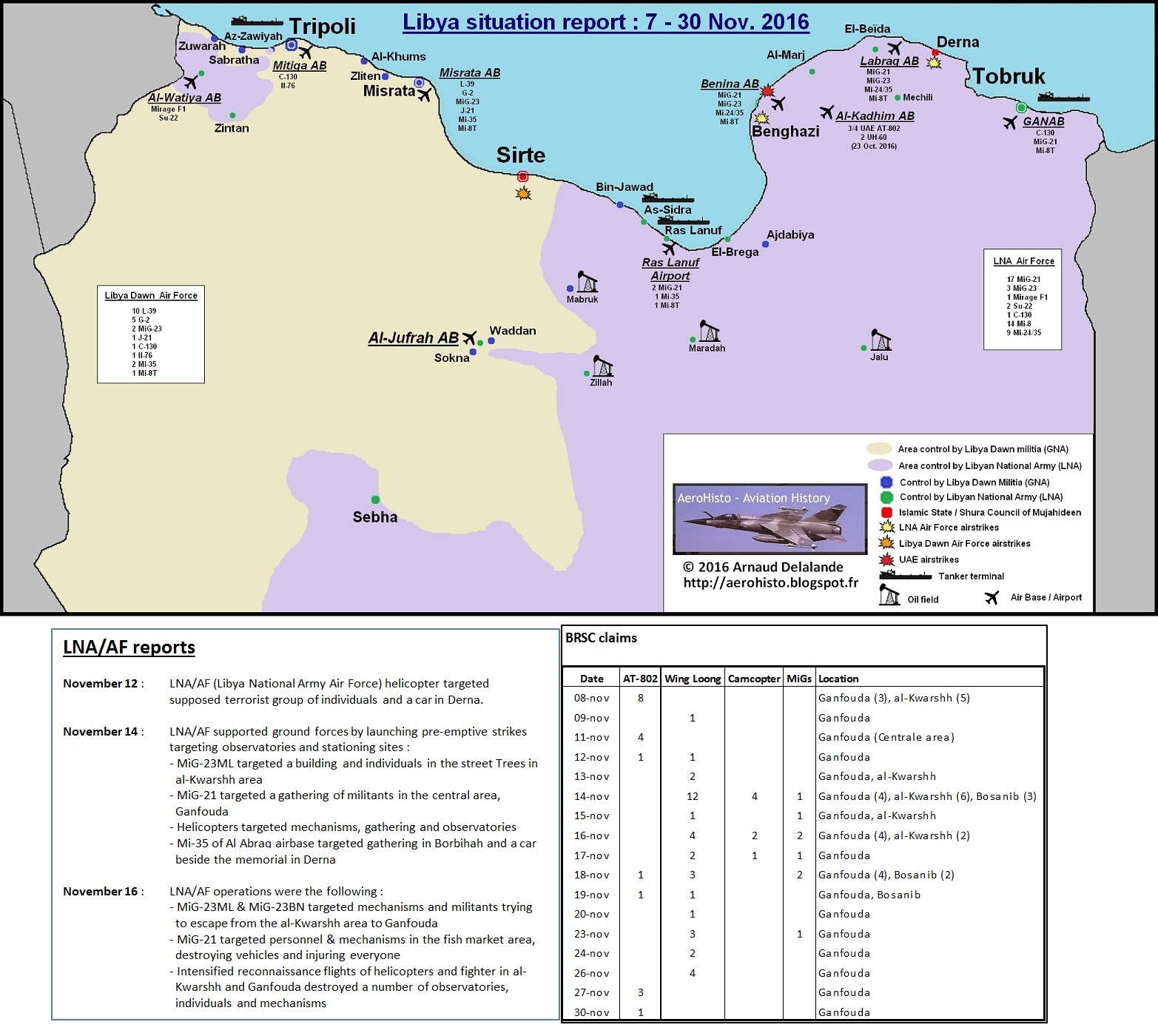
Drone Battle
For now, Chinese-made Wing Loong drones that Western diplomats say are operated by the U.A.E. no longer have free reign over Tripoli and neighboring Misrata, where they’d conducted airstrikes until late last year; Turkish armed Bayraktar unmanned aircraft increasingly dominate the skies.
Turkey is “actively backing” the counter-offensive by Sarraj’s forces to defeat Haftar, said a senior Turkish official who’s familiar with the country’s Libya policy, asking not to be named discussing sensitive information. Turkey’s government declined to comment. President Recep Tayyip Erdogan has conceded Turkish casualties in attacks by Haftar’s Libyan National Army, and vowed to teach the commander a lesson.
“The balance of power has changed in the past two months due to Turkish support and what Turkey has brought in, in terms of material and fighters,” said Wolfram Lacher, a Libya expert with the German SWP research center. “This really raises the question for Haftar’s backers: what are they going to do?” he said. “It raises the prospect for further escalation if they decide to double down, as I would expect them to do.”
Arab and Western diplomats, who spoke on condition of anonymity, agreed that Haftar’s backers in Cairo and Abu Dhabi were likely to boost their own support, further complicating the turmoil.
For days, the Turkish drones have targeted fuel trucks and supply convoys for Haftar’s forces in the west. A drone strike last month killed one of his senior commanders near the city of Sirte. Haftar’s forces continue to operate Russian-made Pantsir air defense systems that shoot down Turkish drones, but they can’t cover the widening battleground.
Haftar’s own top military official in Libya’s west, Mabrouk al Ghazwi, has vowed that if Turkey doesn’t stop its strikes, he will target an oil tanker owned by Libya’s National Oil Corp. and harbored in Tripoli, as well as other targets at the port. The LNA has previously attacked the city’s main airport and the port used to unload Turkish supplies.
International efforts to stop the war and rebuild Libya appeared to be paying off early in the year as both sides tentatively agreed a cease-fire, and their backers pledged at a January summit to respect a UN arms embargo on the country. But those deals rapidly unraveled, as did later plans for a humanitarian truce to help contain the coronavirus.
The fighting has slashed oil output by almost 1 million barrels a day since the start of the year, stunting efforts to revive the economy as the pandemic puts further strain on health care provision described by a UN envoy as “already decimated.”
Instead, the war has escalated. Haftar’s forces and their mercenary allies from Russia’s Wagner group remain entrenched in Tripoli’s southern suburbs despite the recent losses. The United Nations says each side continues to receive supplies, even after the European Union announced an operation to enforce the embargo. Wagner, run by an associate of Russian President Vladimir Putin, has dispatched more troops over the past month, two Western diplomats said.
“Haftar and his backers are on the back foot,” said Emadeddin Badi, a Libya expert and non-resident senior fellow at the Atlantic Council. “I don’t think they are going to let him lose.”
©2020 Bloomberg L.P.
- Previous Balkh Urgently Needs Health Supplies
- Next $6 billion this year to launch counter-China fund




